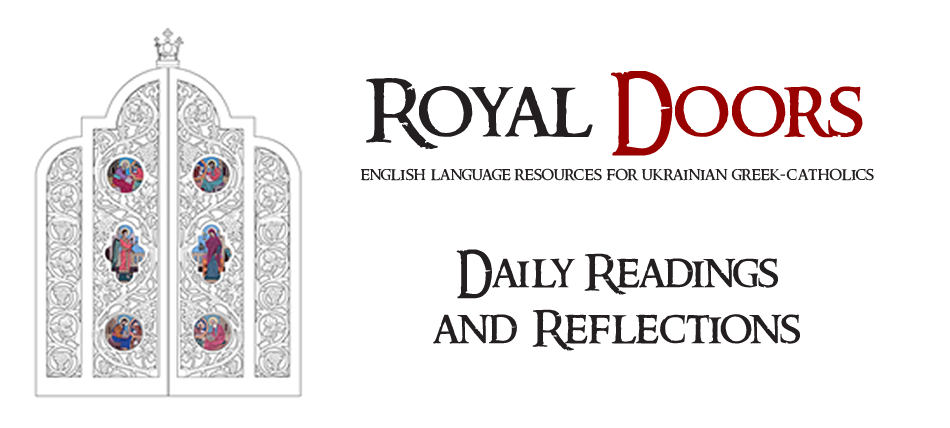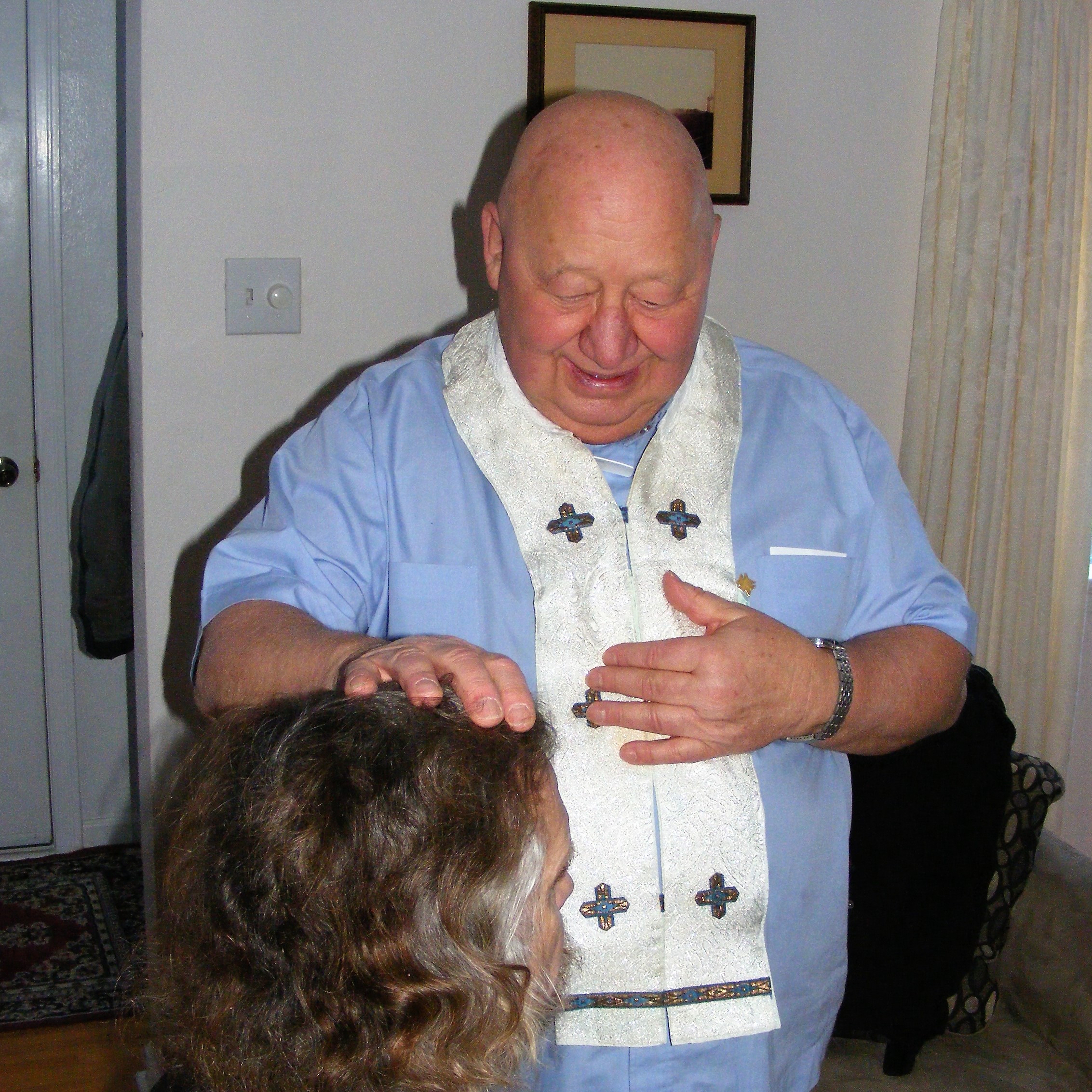by Brent Kostyniuk
While Jesus lived on earth, one of His great ministries was healing the sick. The Gospels are filled with accounts of these miracles which teach us of His merciful love and compassion. So often, however, physical healing was linked to spiritual healing. Indeed, His primary concern was the salvation of souls. Jesus’ mission of healing was carried on by the Apostles and remains with us today in the Holy Mystery (Sacrament) of Anointing of the Sick. Like the miracles of Jesus, it can bring both physical and spiritual healing.
The Holy Mystery of Anointing may be traced to the words of St. James. “Is anyone among you sick? Let him summon the presbyters of the Church, and let them pray over him, anointing him with oil in the name of the Lord. And the prayer of faith will save the sick person, and the Lord will raise him up; and if he has committed any sins, they will be forgiven him” (James 5:14-15). Interestingly, Holy Anointing was originally conferred by several priests, ideally seven, following the words of St. James. In modern Byzantine practice, a much simplified version of Anointing follows the ritual codified by Metropolitan Peter Mohyla of Kiev in 1646.
In the third century Origen (+ 255) quoted the Epistle of St. James to support his doctrine on the Holy Anointing. Later, St. Athanasius the Great (+ 373) referred to the anointing in his commentary on the Psalms. Thus, very early in the life of the Church, a doctrine for Anointing of the Sick was well established. In the Byzantine tradition, the most ancient prayer for the “blessing of the oil of the sick” comes from Bishop Serapius of Thmuis near Alexandria, writing in the first half of the fourth century.
The Holy Mystery of Anointing is really a mini-liturgy beginning with a series of prayers, including the Our Father. Psalm 142 (143) follows describing confidence in the Lord in times of distress. The Ektenia of Peace includes two special petitions imploring God to send down the Holy Spirit, first to sanctify the oil, then to sanctify the sick. Finally, the oil to be used in the anointing is blessed.
Scriptural readings are introduced with a psalm reading called a Prokimenon. “May your mercy, O Lord, be upon us, as we have placed our hope in you” (Psalm 33:22). A reading from the letter of St. James speaks of anointing (James 5:10-16). The Gospel reading is the Parable of the Good Samaritan (Luke 10:25-37). The Gospel is followed by the Insistent Ektenia imploring God “for mercy, life, peace, health, salvation, visitation, and forgiveness of sins” of the sick, and that the Lord “send upon him/her the grace of deliverance from illness, raising him/her from his/her sickbed.”
Central to this Holy Mystery is the actual anointing with its accompanying prayer. “Holy Father, physician of souls and bodies, You sent Your only-begotten Son, our Lord Jesus Christ to heal every infirmity and to deliver us from death. By this anointing, heal Your servant of the spiritual and bodily ills which afflict him/her, and restore him/her by the grace of Your Christ, through the prayers of all Your Saints. For You, our God, are the fountain of healing; and to You we give glory, together with Your only-begotten Son, and Consubstantial Spirit, now and for ever and ever. Amen.”
Dipping his finger into the holy oil, the priest recites the prayer and anoints the sick person on those parts of the body which may have led him/her astray: the forehead where bad thoughts originate; the five external senses—eyes, ears, nostrils, lips, and hands—as organs of sensuality; the chest which holds the heart; and the feet which carry us towards sin. With all these healed by Divine Grace, according to the teaching of some Church Fathers, the soul of the sick person becomes completely purified as it was at the time of the Baptism.
On a personal note, I recently discovered I would need open-heart surgery. While in hospital waiting for the operation, our pastor, Fr. Josaphat Tyrkalo, OSBM, came to confer the Holy Mystery of Anointing of the Sick. As several members of my family were visiting me at the time, they took part in the Holy Mystery, reciting the various prayers and responding to the petitions. In spite of the very clinical surroundings of the hospital room, the presence of the Holy Spirit among us was very keenly felt. Soon after receiving the Holy Mystery, everyone left, leaving me alone in the room. Strangely, I felt an unnatural calmness, a great peace in my soul, and in my body as well. I mentioned this to Fr. Josaphat on his next visit. “No, it is not an unnatural peace” he replied. “Rather, the Sacrament restored you to the natural state of Eden. It is the normal feeling we once had but lost. You were feeling the way we are supposed to feel.”
Although He no longer walks the earth, Jesus’ ministry of healing remains ever present to us today. The Holy Mystery of Anointing of the Sick brings the reality of Christ’s healing power to those most in need.
This piece first appeared in The Prairie Messenger. Reprinted with permission.

